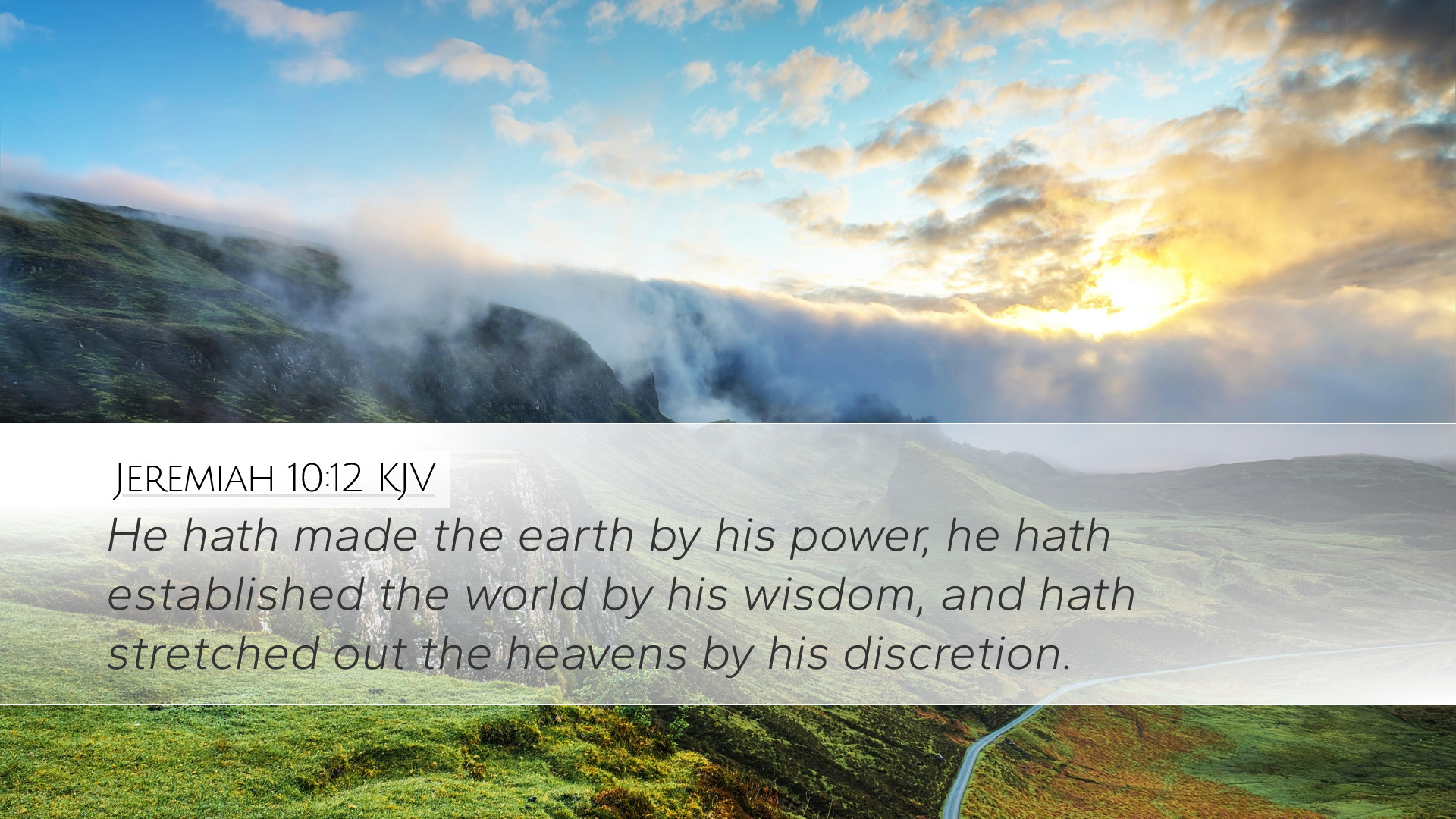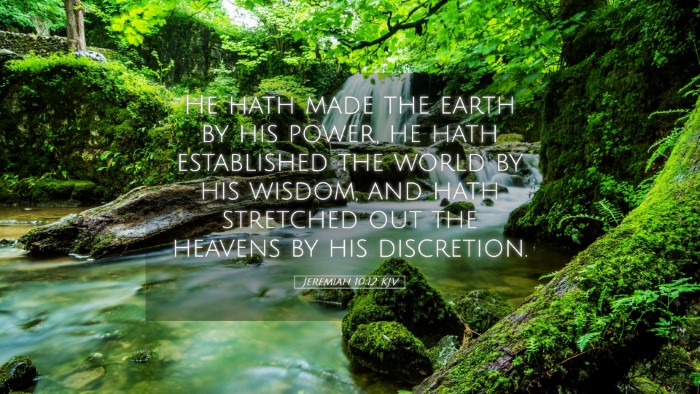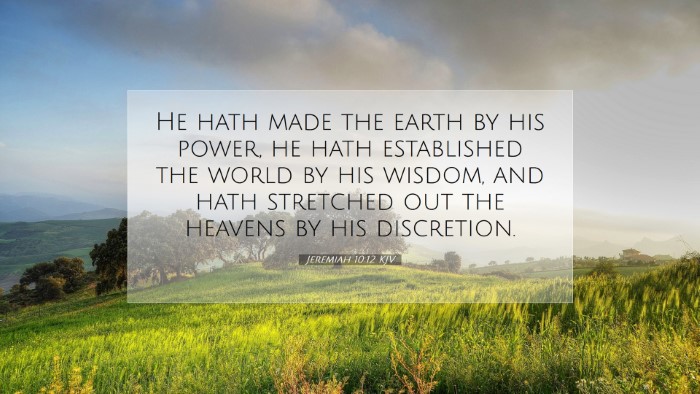Commentary on Jeremiah 10:12
Verse Reference: Jeremiah 10:12 - "He hath made the earth by his power, he hath established the world by his wisdom, and hath stretched out the heavens by his discretion."
Introduction
This verse from the prophet Jeremiah stands as a powerful declaration of God's sovereignty and creative authority. The context of this chapter is a stark contrast between the majesty of God and the folly of idolatry. By establishing the greatness of God, this verse invites deep reflection on His attributes as Creator, and serves as a reminder of humanity's place within His creation.
The Authority of Creation
In this verse, Jeremiah emphasizes three crucial aspects of God's creative work: His power, wisdom, and discretion.
- Power: Matthew Henry notes that God's power is evident in the very act of creation, reinforcing the belief that the world is not a product of chance but of purposeful design. This power encompasses all aspects of the universe, and every element responds to His authoritative command.
- Wisdom: Albert Barnes elaborates on the concept of God’s wisdom, stating that not only did God create the earth, but He did so with a profound understanding. The order and intricacy of creation reflect a deliberate arrangement that showcases God’s intellectual prowess and intention.
- Discretion: Adam Clarke highlights God's discretion, wherein He exercises careful judgment and insight in all His actions. This suggests that creation was not random but involved a thoughtful process reflecting God’s temperament and character.
Theological Implications
The implications of Jeremiah 10:12 are profound for various theological discussions. The doctrine of creation articulates several key themes:
- The Sovereign Creator: The supremacy of God as the Creator stands in opposition to the idols worshiped by the people of Judah, a theme that permeates the surrounding verses in Jeremiah. Henry suggests that these idols, which require human sustenance, sharply contrast with a God who sustains all of creation.
- Order and Design: The idea that God created the earth by His wisdom implies intentionality. Barnes points out that this concept of design is significant, as it speaks against the backdrop of chaos that idolatry brings. The created order is a reflection of God’s character, imbued with purpose.
- Human Responsibility: Understanding God’s role as Creator implies a corresponding responsibility for humans to respond to His authority. Clarke emphasizes that acknowledging God as Creator should invoke worship and obedience rather than the rebellion that idolatry represents.
Contrasting Idolatry with Divine Creation
Jeremiah addresses a community grappling with the allure of idol worship, which relies on creations of human hands. The sharp contrast between the Creator and created objects serves not only as a theological admonition but as a warning against misplaced worship.
- The Futility of Idolatry: Henry provides insight into the futility of placing trust in idols, which, unlike the living God, are devoid of power and wisdom. The experience of the people is rooted in the very real consequences of their decision to turn from God.
- God’s Unchanging Nature: In contrast, God’s creative authority remains constant regardless of human actions. Barnes notes that while the world may change, the foundation laid by God’s wisdom and discretion is unshakeable.
Application for Today
In contemporary discussions, Jeremiah 10:12 has significant implications for how faith communities understand creation and the nature of God. The recognition of God’s power, wisdom, and discretion should inform Christian practice and belief.
- Creation Care: Understanding God as the Creator fosters a theological foundation for environmental stewardship. Conviction in God’s lordship encourages believers to respect and protect His creation.
- Worship and Reverence: The recognition that God sustains the universe calls for genuine worship. Clarke emphasizes that true worship impresses upon believers the need for humility and gratitude towards a God who is both transcendent and immanent.
- Engagement with Culture: Believers are challenged to engage with a world that often worships idols of materialism and self-sufficiency. This passage serves as a rallying cry for Christians to declare the living God amidst cultural distractions.
Conclusion
Jeremiah 10:12 is not just a declaration of creation but a profound testament to the character of God. As His power, wisdom, and discretion are acknowledged, believers are called to reflect this understanding through their worship, actions, and interactions with the world. Embracing the truths found in this verse strengthens the faith of individuals and the church as a whole, directing focus away from idolatry toward the wonder and majesty of the Creator who governs every aspect of existence.


